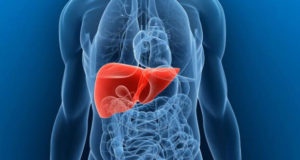 Lets start with a quick over view of the hepatitis viruses:
Lets start with a quick over view of the hepatitis viruses:
Hepatitis A is an acute illness that never becomes chronic. This virus is transmitted through direct contact with feces or indirect fecal contamination of food or water.
Hepatitis B is an acute illness for most individuals, however, approximately 8% of infected patients go on to develop chronic hepatitis B. This virus is transmitted through sexual contact, contaminated needles, and infected blood/body fluids.
Hepatitis C is an infectious disease caused by the hepatitis C virus that affects the liver. The virus spreads through contaminated blood or body fluids of an infected person. Hepatitis C isn’t spread through food, water, or by casual contact. Patients with chronic hepatitis C are at risk for developing cirrhosis, liver failure, and liver cancer.
Symptoms:
- Loss of appetite/ Nausea
- Fever
- Weakness / Tiredness
- Aching in the abdomen
- Dark urine/ light-colored stools
- Jaundice
There is currently no vaccine for hepatitis C and treatment of chronic hepatitis C, is usually by injections of interferon, as well as a “cocktail” of other medications.
Hepatitis D:
The hepatitis D virus can’t be contracted on its own. It can only develop in people who are already infected with the hepatitis B virus. Getting vaccinated against hepatitis B will provide protection against hepatitis D since hepatitis B must be present in order for hepatitis D virus to survive. The symptoms for hepatitis D are similar to those of hepatitis B.
Hepatitis D can be acute or chronic and is transmitted through exposure to the bodily fluids of an infected person. There’s currently no cure or vaccine for hepatitis D.
Hepatitis E:
Hepatitis E is a viral hepatitis that is found in countries that lack clean water and sanitation. The hepatitis E virus is a short-term, acute version of hepatitis, which is transmitted through indirect fecal contamination of food or water. The symptoms of hepatitis E resemble those of hepatitis A
Hepatitis E is not known to cause chronic infection, and most people with hepatitis E go on to a full recovery.
Hepatitis G:
The hepatitis G virus was recently discovered (resembles the hepatitis C virus), but more investigation and research is needed.
Ff you suffer from any of the symptoms we have listed, or travel etc. please contact your doctor or healthcare practitioner.

